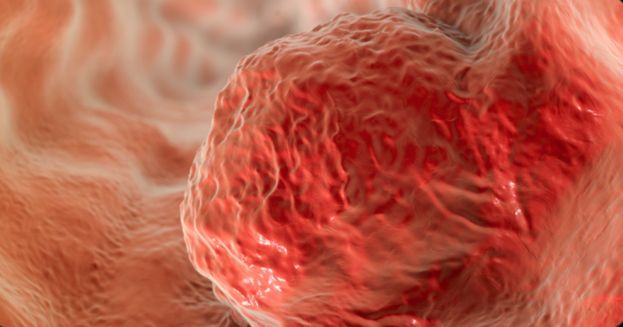The precise reason for the rise of esophageal cancer in younger folks is not entirely understood. Still, skyrocketing rates of obesity, unhealthy diets, and chronic heartburn or gastroesophageal reflux disease (GERD) are feasible factors. They all tend to traverse together, declared study author Dr. Bashar Qumseya. He's an associate professor of medicine and chief of endoscopy at the University of Florida.
WATCH: "WE WILL OPEN YOU UP LIKE A SOFT PEANUT"![]()
Chronic heartburn leads to Barrett's esophagus, which is observed by abnormal changes in the cells that line the esophagus.
This upsurge in rates of esophageal cancer in younger people mirrors what has been seen in colon cancer.
"With colon cancer, we used to recommend screening at age 50, and then we saw compelling evidence that the rate was going up in younger people, so some groups now call for screening at age 45," stated Qumseya.
WATCH: HOW WAS JURY SELECTION HANDLED IN TRUMP'S TRIAL?![]()
It may be a juncture to do the same for esophageal cancer screening if a person has other peril factors, he expressed. These incorporate alcohol use and smoking.
"If you have reflux and other risk factors for esophageal cancer, consider getting a screening endoscopy when you undergo your colonoscopy to screen for colon cancer," Qumseya stated. Both tests can be conducted at the same time. There are no screening guidelines for esophageal cancer yet.
A LOOK INSIDE DEMOCRATS' PLAN TO WIN BACK THE HOUSE WITH RECORD INVESTMENT![]()
The disease is named a silent killer because symptoms often go undetected until cancer has advanced.
For the study, the researchers tapped into the electronic health records of about 5 million people in Florida. They examined esophageal cancer and Barrett's esophagus rates among people in three age distributions of 18 to 44, 45 to 64, and 65-plus.
Researchers found rates plateaued among the oldest group. They explained that the rise in rates of esophageal cancer among middle-aged adults isn't due to more aggressive screening. There was no expansion in the rate of endoscopy during the study period.
DEMS' LAST-MINUTE BID TO SAVE SEATS AMID SOUTHERN BORDER TURMOIL!![]()
The findings are planned for presentation at the 2022 Digestive Disease Week, to be held virtually and in San Diego May 21-24. Findings demonstrated at medical meetings should be regarded as preliminary until published in a peer-reviewed journal.
ICE BLUNDER: AFGHAN NATIONAL SUSPECTED OF TERROR TIES ESCAPES U.S. TRACKING PROGRAM IN DAYS...![]()
Going forward, Qumseya and his colleagues plan to reevaluate the data to distinguish between the two types of esophageal cancer: esophageal adenocarcinoma and squamous cell carcinoma.
That's key, as each type has different potential causes and risks to consider, said Dr. Devika Rao, a medical oncologist at Memorial Sloan Kettering Cancer Center in New Jersey. "Squamous cell cancers are most prevalent in Eastern Europe and Asia and are triggered by smoking and tobacco exposure," stated Rao, who has no ties to the new study. By disparity, in Barrett's esophagus, obesity and diet are linked to esophageal adenocarcinoma.
FOX NEWS COLUMNIST TEARS APART MTG'S "RECKLESS AGENDA"![]()
"Population studies such as these are important in raising awareness both among the general public and the medical communities," she said.
"It is alarming to note that cancers that were once considered an ailing of the elderly are rapidly becoming lifestyle-dependent and affecting younger and younger individuals," Rao said.








 Discover alternative ideas that will make you think
Discover alternative ideas that will make you think Engage in mind bending debate
Engage in mind bending debate Earn points, rise in rank, have fun
Earn points, rise in rank, have fun


